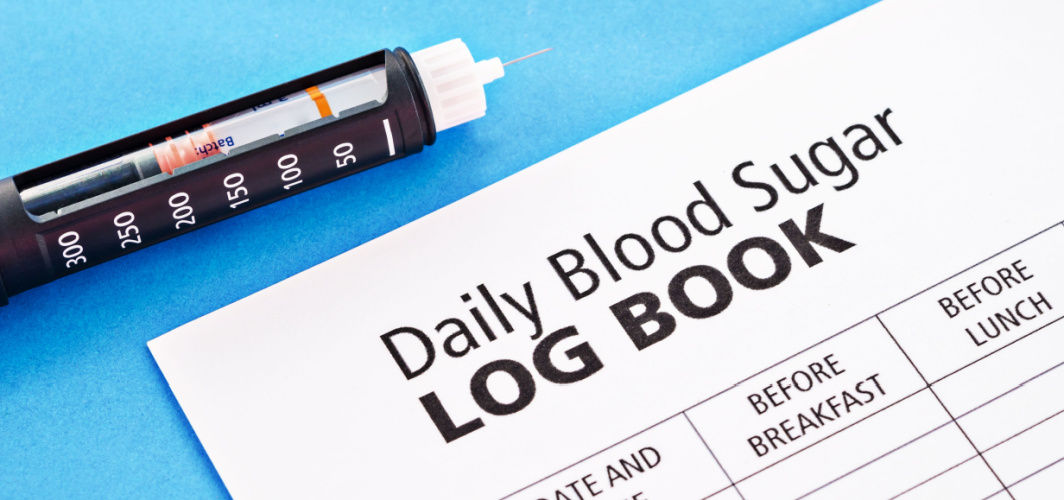Diabetes Management
7 Reasons Why Blood Sugar Logging is Important in Diabetes?
3 min read

Managing diabetes effectively is a daily challenge that requires attention to various factors, and one of the most critical aspects is monitoring blood sugar levels. People dealing with Type 1, Type 2 or Gestational Diabetes must log their sugar readings to achieve better control of their condition and prevent complications. In this blog, we will discuss a few reasons why blood sugar logging is so crucial in diabetes management:
1. Provides Insights into Glycemic Control
Regular blood sugar monitoring provides essential insights into your glycemic control. It allows you to see how your body responds to different factors such as meals, medications, physical activity, and stress. By tracking your blood sugar levels over time, you can identify patterns and trends, enabling you to make informed decisions about your diabetes management.
2. Treatment Adjustments
Blood sugar data helps healthcare providers assess the effectiveness of your treatment plan. If your readings consistently fall outside the target range, it may indicate the need for adjustments in your medication, dosage, or treatment strategy. This ensures that your diabetes management plan remains tailored to your specific needs and responds to changes in your condition.
3. Hypoglycemia and Hyperglycemia Prevention
Monitoring blood sugar levels allows you to detect and prevent both hypoglycemia (low blood sugar) and hyperglycemia (high blood sugar) episodes. Recognising early signs of these fluctuations helps you take prompt action, whether it's consuming glucose for hypoglycemia or adjusting your treatment for hyperglycemia. This proactive approach reduces the risk of blood sugar imbalances.
4. Lifestyle Modifications
Blood sugar logging empowers you to make informed lifestyle choices. You can see how different foods, meal timing, and exercise impact your blood sugar levels. Armed with this knowledge, you can make adjustments to your diet and physical activity routines, promoting better glucose control and overall health.
5. Preventing Long-term Complications
Consistent blood sugar monitoring is essential for preventing long-term complications associated with diabetes, such as neuropathy, retinopathy, kidney disease, and cardiovascular issues. Maintaining stable blood sugar levels within target ranges can significantly reduce the risk of these complications and lead to a higher quality of life.
6. Personalised Diabetes Management
No two individuals with diabetes are exactly alike, and blood sugar data allows for personalised diabetes management. It enables you and your healthcare provider to tailor your treatment plan, including medication, diet, and exercise recommendations to your unique needs and goals.
7. Sense of Control
Monitoring your blood sugar levels provides a sense of control and peace of mind. Knowing where your glucose levels stand at any given time reduces anxiety and uncertainty, allowing you to live a more fulfilling and worry-free life with diabetes.
Conclusion
Blood sugar logging can prove really helpful for effective diabetes management. It provides valuable insights, supports treatment adjustments, helps prevent extreme blood sugar fluctuations, guides lifestyle modifications, and reduces the risk of long-term complications. By actively monitoring and recording your blood sugar levels, you empower yourself to take charge of your diabetes and lead a healthier, more fulfilling life.
Diabetes Management
Leave Comment
Recommended for you

Diabetes Management
Is Increased Thirst A Sign Of Diabetes?
Excessive thirst can be a warning sign of diabetes. Learn about how you can manage and prevent this condition.

Diabetes Management
A Healthy Weight is Key to Better Blood Sugar Control
Maintaining a healthy weight is crucial for better blood sugar control. Excess weight can contribute to insulin resistance and difficulty managing blood sugar levels. By adopting a balanced diet, engaging in regular physical activity, and maintaining a healthy weight, individuals can improve insulin sensitivity and enhance their ability to manage blood sugar effectively.

Diabetes Management
Can Diabetic Dementia be Reversed?
Diabetic dementia is a condition linked to diabetes that impacts cognitive function. There are effective strategies to manage and mitigate its effects, allowing for an improved quality of life. One crucial aspect of managing diabetic dementia is achieving and maintaining optimal blood sugar control. Lifestyle modifications also play a pivotal role in addressing diabetic dementia. Regular physical activity, such as aerobic exercises and strength training, enhances insulin sensitivity, reduces inflammation, and promotes overall brain health. Maintaining a balanced diet rich in essential nutrients, fibre, and healthy fats can further support insulin regulation and reduce the risk of cognitive impairment.
Subscribe
Sign up for our free Health Library Daily Newsletter
Get doctor-approved health tips, news, and more.
Visual Stories

8 Fruits That are Incredibly Healthy for Diabetes
Tap to continue exploring
Recommended for you

Diabetes Management
Is Increased Thirst A Sign Of Diabetes?
Excessive thirst can be a warning sign of diabetes. Learn about how you can manage and prevent this condition.

Diabetes Management
A Healthy Weight is Key to Better Blood Sugar Control
Maintaining a healthy weight is crucial for better blood sugar control. Excess weight can contribute to insulin resistance and difficulty managing blood sugar levels. By adopting a balanced diet, engaging in regular physical activity, and maintaining a healthy weight, individuals can improve insulin sensitivity and enhance their ability to manage blood sugar effectively.

Diabetes Management
Can Diabetic Dementia be Reversed?
Diabetic dementia is a condition linked to diabetes that impacts cognitive function. There are effective strategies to manage and mitigate its effects, allowing for an improved quality of life. One crucial aspect of managing diabetic dementia is achieving and maintaining optimal blood sugar control. Lifestyle modifications also play a pivotal role in addressing diabetic dementia. Regular physical activity, such as aerobic exercises and strength training, enhances insulin sensitivity, reduces inflammation, and promotes overall brain health. Maintaining a balanced diet rich in essential nutrients, fibre, and healthy fats can further support insulin regulation and reduce the risk of cognitive impairment.